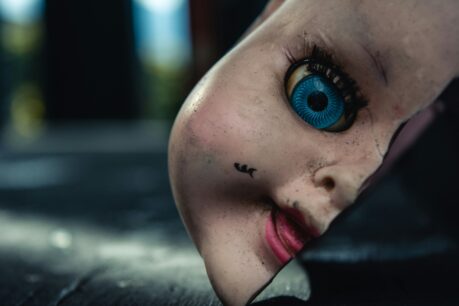China Dolls
Catherine Liu, February 2, 2024
As children, we were unaware that we would never meet our parents’ expectations—expectations that had illuminated their eyes when they greeted us for the very first time in this world. After many years, our parents would still fetch the carefully kept photos of our ruddy torsos, our faces smudged from baby slobber.
Look at you, they would eagerly exclaim, pointing at those crying grimaces, their voice quivering with a kind of radiant joy, a joy that we could not quite fathom.
Even before we took our first steps, our parents had already envisioned bright futures for their daughters. When we reached our first birthday, they made us do zhuazhou. All close relatives and family friends gathered together on that day. Following a big feast, assortments of gifts were laid out before us, and we were asked to crawl towards one. It was believed that the object chosen would unveil our inherent talents and future paths.
Throughout our childhood, our mothers boasted about our zhuazhou choices, often at some friends or family get-togethers: My daughter grabbed a pen; she’s destined to be a writer! My daughter got an abacus; a future mathematician for sure! My daughter held up a flute; mark my words, she’ll become a famous musician!
We, on the other hand, were yet to grasp the complexities of the world’s occupational hierarchy. The only thing we understood and cared about was our dolls.
As children, we loved playing with dolls. Our dolls were mostly Barbie knockoffs produced in sweatshops. Some of us had more expensive ones made of solid plastic. But most of us owned the cheap ones: the perfectly skinny bodies were made of soft pale ivory-colored plastic, their interiors hollow. Often, when we held our darlings up to a lamp, we could see the light passing through their semi-transparent thighs. Their heads, composed of rigid rubber, gave out a nauseating reek. Years later, many of us would smell the same stink from the blue latex gloves at our research labs, and would secretly wonder why the scent felt so familiar that it almost evoked a nostalgic melancholy. We would never admit this sorrow, of course—we were not babies anymore.
The dolls’ large almond eyes, irises brilliant shade of blue, were meticulously painted on their faces, matched reasonably with their waist-length blond hair. At the age of seven, the desire to primp ourselves for attention was still dormant, yet we celebrated our dolls’ beauty. We never consciously pondered the idea of one day becoming just like them, with fair skin and azure eyes, but we manipulated them and imitated their voices. In our world, our dolls and ourselves were one and the same.
Our parents frowned when they caught us immersed in doll play. Abruptly appearing during our improvised doll shows, they would glare at us without uttering a word. Intimidated by their daunting stare and somber silence, our friends would scatter away one by one.
Only then would our parents scold us. Did you finish your homework? Or How many times do I have to tell you not to play with dolls on weekdays? Your generation just doesn’t know how to seize opportunities right in front of you.
Their lectures often gave into stories of their own past. When we were your age, only two or three students from the entire school could get into universities each year. We would study day and night, yet most of us failed. It was like a million soldiers trying to cross a single-log bridge at once—most would tumble into the abyss. Nowadays, everything has changed. Anyone who studies diligently can secure a spot in some kind of university. Yet, it’s the top-tier universities that can truly land you a good future.
Wrapping up their lectures, they would reiterate, You kids are fortunate, so cherish your blessings and put in the hard work.
In childhood, we heard the phrase “survival of the fittest” from the adults so frequently that these admonitions gradually faded into background murmurs. Adults insisted that we must maintain straight-A grades and gain admission to the finest primary schools, middle schools, and junior highs. Then came the daunting College Entrance Exam, the Gaokao, a pivotal and grueling competition where university rankings seemed to wield the power to dictate job prospects and future incomes. In an ideal world, the Gaokao would be one’s ultimate step towards a happily ever after. However, as more and more students pursued higher education, even obtaining a PhD from the Western world couldn’t guarantee a lucrative career.
Still, the gravity of the situation eluded us in those days. Nearly every evening, we were engrossed in the world of dolls.
Some of us clandestinely skipped our cram classes to join the game—an advanced-level English course designed for kids several years our senior. Our parents believed that studying with older kids would offer us a head start against our peers. Thus, on certain late afternoons each week, we fidgeted in classrooms alongside formidable adolescents, in the impalpable background noise of the teacher’s lectures. Amid the gobbledygook, we doodled Sailor Moon or Pokémon. As soon as the classes ended, we swiftly tucked our textbooks away from our classmates. (Come and see what the random kid was sketching during class, they would taunt, snatching the books away.)
On our way home, we meticulously concocted responses to our parents’ inevitable question, How’s your English class going? Eventually, we became adept at skipping class, our hearts trembling with shameful anxiety that our lies would one day be exposed.
A few of us were supposed to be knee-deep in our daily eight-hour piano practices, yet we managed to slip away and join the game. We were expected to play an immaculate Beethoven’s Piano Sonata No. 12 in A-flat Major by the end of the summer. Each month, our piano lessons swallowed up a quarter of our parents’ earnings.
When I was young, I loved music, our parents reflected, a tinge of longing in their voices, but my family couldn’t afford a piano. Now I’m pinning all my hopes on you to fulfill my dream. I failed to become a musician, but you must become the best pianist.
Years later, even after most of us had quit piano for good, we would still wake up from the same recurring nightmare: being in piano class as our teacher pointed out the wrong note we had played or reprimanded us for insufficient practice. We dared not to turn to look at our fathers—we knew that among a group of earnest and hopeful parents seated behind us, our fathers would be burying their flushed and sullen faces deep inside their palms.
Most of us lied to our parents that we had completed all our homework, before dashing across the streets to join the game. Just two nights earlier, we had engaged in a heated argument with our parents about our lackluster performance on the mid-term.
Yoursillydolls won’t help you get into a good college, our fathers bellowed, Are you begging for another good thrashing?
Our screams reverberated through the entire apartment building, blending with echoes of our quarrel and the sound of the blows, and spilling into the darkness of the night. In the following days, we bowed our heads, hurrying through the corridors, desperately wishing that none of our neighbors had heard our screams or glimpsed our bruises. Thankfully, they tacitly let us escape their amused gaze.
Perched on stools in a circle, we spun elaborate doll fantasies, drawing inspiration largely from the popular late-night TV we managed to catch glimpses of during our brief bathroom breaks from studying. If our parents were in a good mood, they would allow us to watch a little bit longer. Gorgeous double-agent heroines embarking on covert missions to protect their country, femme fatales entwined in love affairs with unsuspecting police officers, or Qing Dynasty Chinese princesses entangled in battles for supremacy among royal cousins. We all desired to elevate our own dolls as the sole heroines, so we snatched each other’s lines and constantly shook our dolls to animate the gestures of speaking, stretching the storyline into disjointed fragments.
Our dolls also taught us fashion. Each day, we would pause at the toy shops outside our school, our gaze fixated on the neatly arrayed doll dresses, handbags, and shoes. Especially the shoes—fingertip-sized pink pumps, crimson loafers, golden sandals, sapphire go-go boots, and crystal flats. It is from this period that we can trace our lifelong addiction to footwear, an obsession our future boyfriends would neither comprehend nor appreciate.
But most of us could not afford the luxury. Some attempted to strike a deal with their parents, offering to achieve perfect scores in the final exams in exchange for monetary rewards. Others secretly skipped meals, diverting lunch money to a growing savings stash. A few pilfered loose changes from their parents’ coat pockets. But more often than not, we crafted doll clothes ourselves. After watching our grannies sew, we sought to master the art of tailoring and fashion design. We beseeched our grannies for patches and rags, at times even cutting up our own garments to amass enough materials. Stitch by stitch, we assembled polka dot chiffon blouses, scarlet velvet bandage dresses, turquoise rayon A-lines, and magenta silk kimonos adorned with hints of lilac, all meticulously tailored to suit our beloved dolls.
Our parents, on the contrary, lacked a flair for fashion. Our mothers seldom splurged on new outfits for themselves, let alone flashy jewelry or pricy cosmetics. Their outdated attire cast a depressing shadow, making them worn and gray. And time had not been kind to them either, for their faces were already wizened and their hair dusted with white. We can still recall the twinge of guilt when secretly wishing our parents would not attend our primary school’s homecoming—imagining them among those regal parents, pointing at us and whispering to their rich kids, Look, they are so poor.
We’re not poor, our parents would insist, pushing shopping carts filled with our new dresses, vibrant overcoats, and cute sun hats to the checkout.
Yet, the specter of poverty remained etched into our identities. From an early age, we understood it was poverty that separated our parents from us. In childhood, some of us only saw our fathers several days a month—they were Airbus pilots caught in the cycle of frequent long-haul flights, or managers stationed in distant cities, toiling ceaselessly to provide for the family. Our mothers laughed out loud but later went silent, as they saw their three-year-old daughters waving goodbye to their fathers, who had made another fleeting visit. In milky childish voices their daughters bid their farewell, Bye-bye, uncle, hope you’ll come visit by our home again next time.
Others among us were entrusted to our grandparents’ care during our kindergarten years and saw our parents only once a week. Our relentlessly busy parents could not spare time for their endlessly crying, attention-seeking little ones. Hence, Sunday afternoons became the happiest moments in our lives—when our parents visited. But joy and sorrow always lay entwined, as we knew that the next moment our parents would abandon us again. This bittersweet emotion persists to haunt us to this day. In adulthood, we often find ourselves yearning for love, but unable to trust those we love, and only into those who hurt us.
Clutching the hem of our mothers’ blouses, we pleaded, Mama, please don’t leave me, Mama!
Gently wiping our cheeks, our mothers would swiftly turn away, their own eyes shimmering.
You will thank me for this one day, we would hear our mothers murmur, their voices quivering, their silhouettes gradually dissolving into the warm, orange hues of the setting sun.
Some years later, when most of us had long stowed away our dolls in dusty closets, never sparing them another thought, our teacher, with a sudden fancy for nostalgia, asked us to bring our cherished childhood toys to class. After years of recurring threats and compromises (We will toss your dolls if you don’t study!), scoldings and talking backs, rebellions, and spankings, as well as other minor tragedies associated with those plastic blondies, none of us bothered to dust off the cobwebs and retrieve our old companions.
But our feigned nonchalance crumbled when we witnessed one girl reveal her treasured toy—it was a Barbie!
Yes, a real Barbie, just like the ones we had seen on TV, the extravagance we had only dared to dream of. Her Barbie was made of hard plastic cloaked in a layer of rubber. The body, pliant and soft like human flesh, was dressed in a pink trumpet-shaped evening gown crafted from taffeta, adorned with delicate, sparkling sequins. Our gazes were fixed in awe as the girl bent her Barbie’s knees—her doll had joints that could contort to various angles— much like those of a miniature human!
My dad bought it for me from America, the girl proclaimed.
Then she continued to move her mouth, but we could no longer take in her words. The uneasy shroud of silence sealed us, thumping our stomachs and choking our chests, each breath feeling like a needle of pain stitching into our hearts.
For a reason that we could not quite grasp, after the class, none of us wanted to speak to that girl anymore.
In childhood, we were unaware that our parents might one day change their minds. We always perceived them as these unyielding, dry walnuts, incapable of being replenished with tenderness and emotion, or as silent and frozen walls, immovable no matter how hard we cried and bounced ourselves onto them.
After we moved on from the doll game, most of us, thrust into the harsh embrace of reality, plunged into the race toward a seemingly brighter future. Some gained entry into the nation’s top universities, while others, following their parents’ aspirations, received acceptance letters from prestigious universities in America.
At the airport, our parents saw us off. As we embraced our fathers, we anticipated their customary exhortations one more time: Study hard, be the best, never give up!
Our fathers, however, roughly wiped their eyes and murmured: Don’t overexert yourself; take good care.
Glancing at their seventeen-year-old daughters, our mothers suddenly burst into tears. We heard her mumble, I don’t want you to leave me, my baby.
Brushing away the moisture from their eyes, our parents forced a smile and encouraged us, Relax more, make new friends… Don’t push yourself too hard, we just want you to be happy and live a simple life… If you don’t like it in America, just come back home—our doors are always open.
We could not pinpoint exactly when and why our guiding captains, who had been steering our lives for seventeen years, veered their course. But already it was too late. Saying our goodbyes and merging into the bustling sea of travelers, we knew that once again, we had failed our parents. We failed them when we could not grow into their perfect kids, receiving top grades, playing the skillful piano, or outshining everyone else in math and English to make them proud. And now, we failed them once more by fleeing from them and refusing to just “be happy and live a simple life”.
We understood that, at least for the next two months, our absence would remain an unfamiliar void for our parents. They would call out our names in the morning to wake us up, only to follow it with a deep, lingering sigh.
Facing their lonely and anguished silhouettes on the other side of the airport security checkpoint, we recognized their pain, much like the pain we had once felt when our childhood reached its end.
For each of us, childhood ended at different moments, in more or less similar ways.
My childhood ended on a Thursday night. Catching me red-handed sneaking out with my doll, my parents erupted in fury. The precise retort I vehemently fired back has escaped my memory. They slapped me. They wrenched the doll from my hand. They fetched a large pair of clippers.
Yelling, crying, and desperate pleas echoed through the entire building.
They tore apart the self-made navy-blue denim romper. They sheared off the golden hair. They cut the perfect pale ivory arms and legs into pieces of soft plastic rings.
They killed my doll.
You will thank us for this someday.
They handed the remnants back to me—they felt substantial in my hands.
Trash them, they ordered.
Then they demanded to know why I discarded my doll, and forced me to answer:
Because I don’t like dolls anymore. I’m a big girl now. I’m going to study.
You may also like

Eyes of the Beholden
Unspoken desires linger in the shadows of a teacher's life, revealed through art

LOST
Bessie's odyssey through stormy nights, lost love, and secret graveyards unfolds with haunting beauty in "Lost" by Sandra Dennis.

Water Rising
Amidst a flood, a woman grapples with the past, and confronts the consequences in this haunting narrative of resilience.
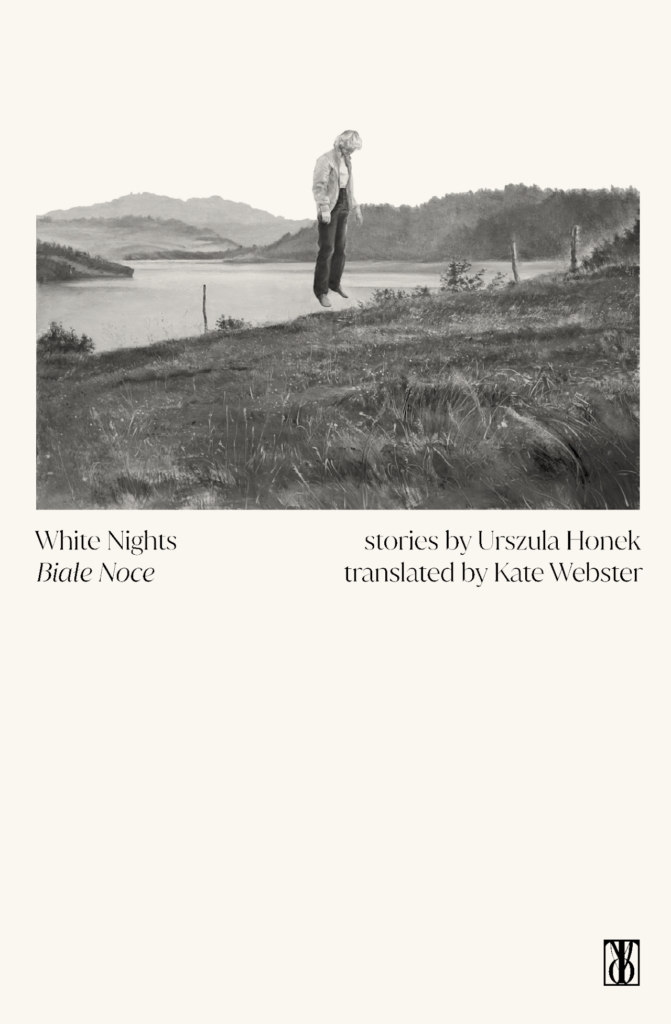
Book Review: White Nights by Urszula Honek
The debut short story from Polish writer Urszula Honek, White Nights, is akin to reading an account of a haunted place – one that is beautiful and devastating in equal
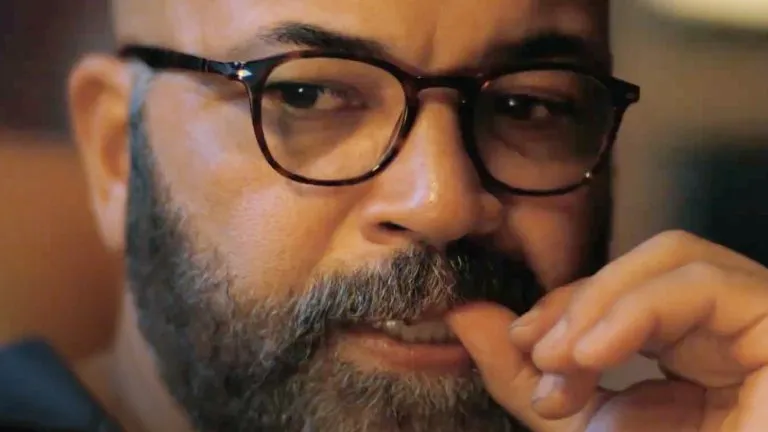
Beyond the Surface: The Multifaceted Lives of ‘American Fiction’
In essence, "American Fiction" and the experiences it draws from remind us that we are indeed more than the sum of our parts.
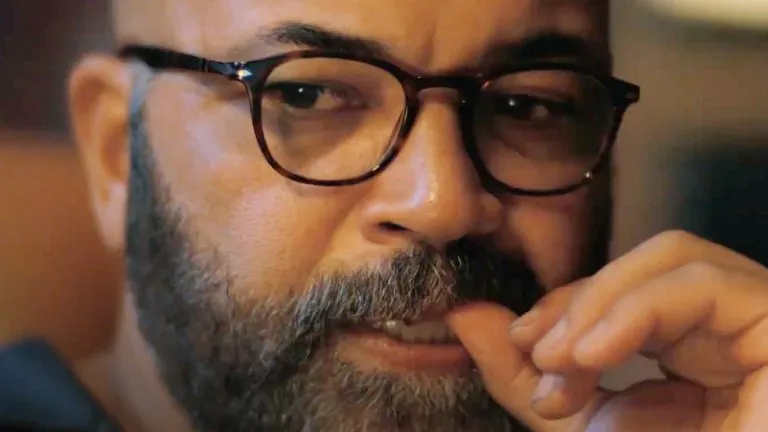
Beyond the Surface: The Multifaceted Lives of ‘American Fiction’
The narrative of “American Fiction” unfolds with a dual focus: it not only scrutinizes the unique pressures faced by Black creatives but also delves into the intricate and sometimes tense…
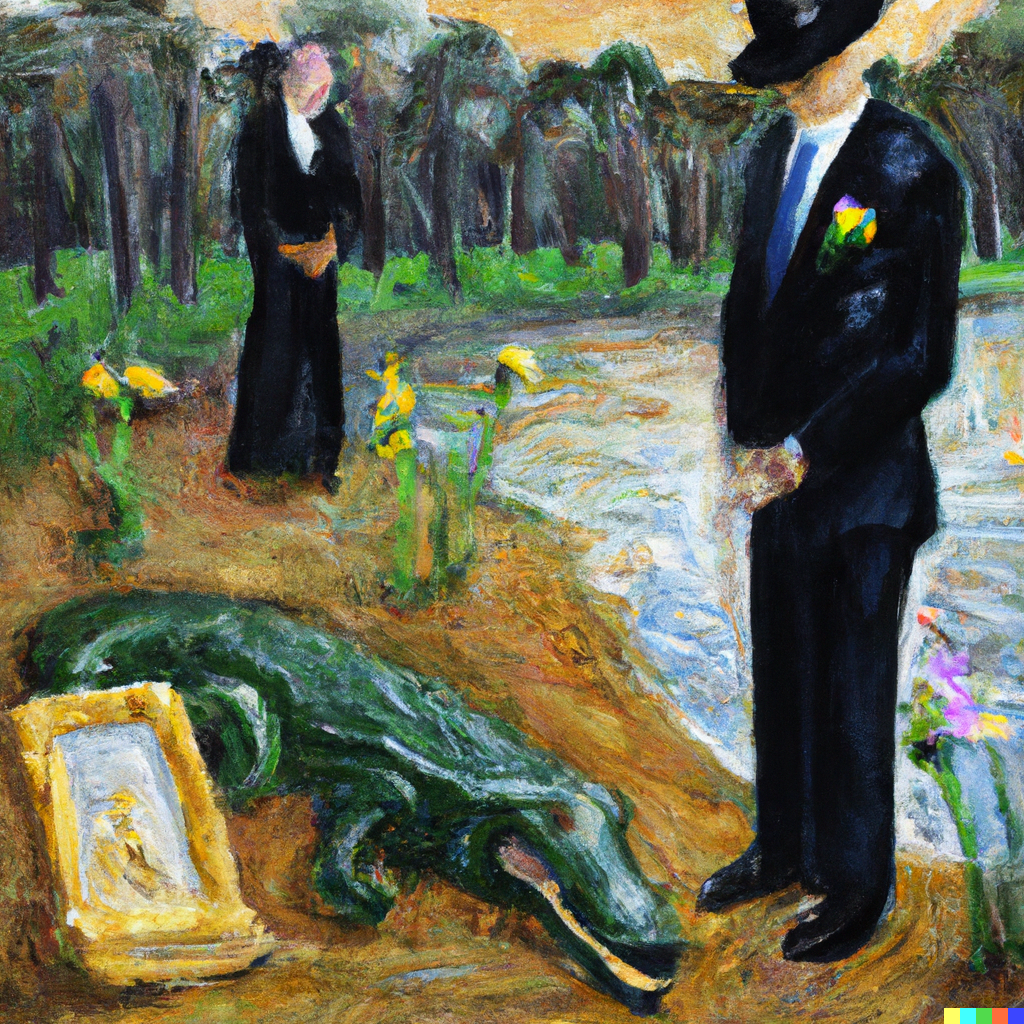
Uncle Bobby’s Funeral
Reluctant family faces the eccentricities of Uncle Bobby's funeral in swampy Chipley.




